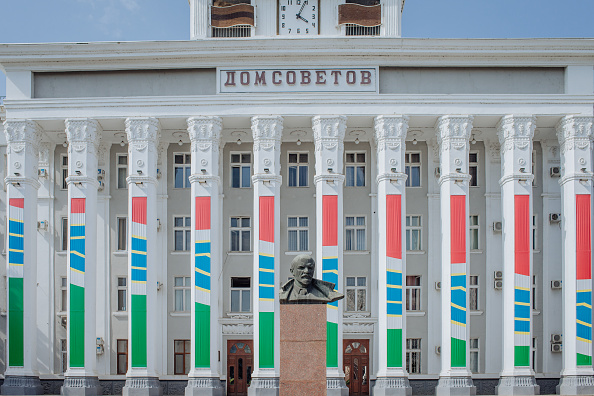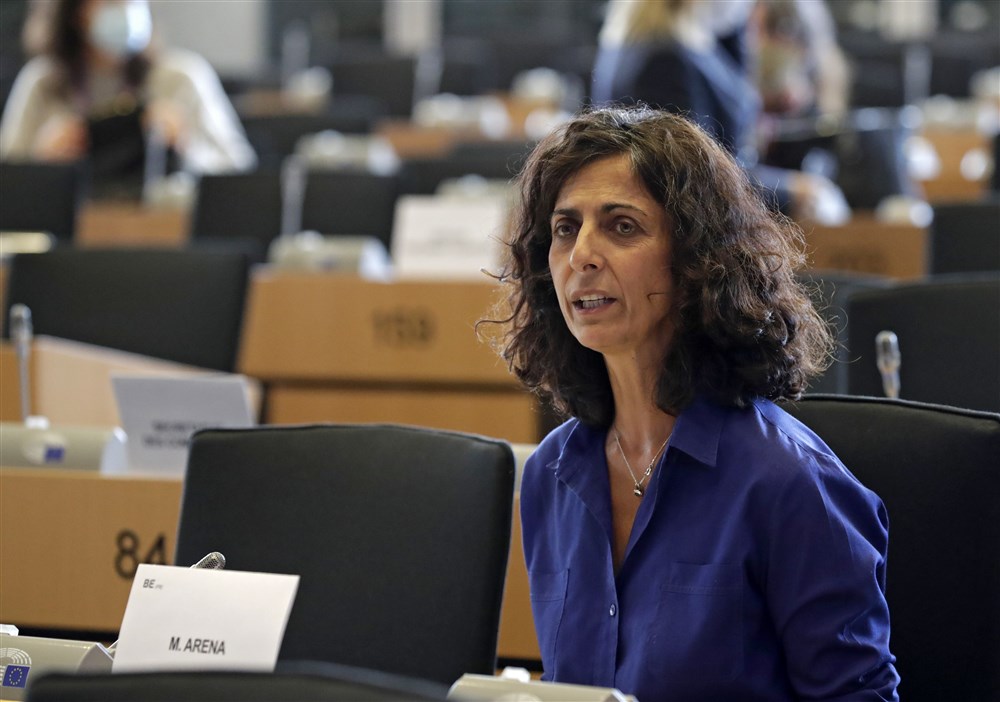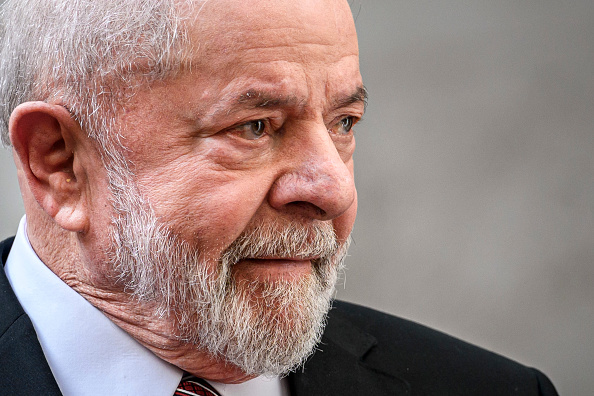At a time when Ukraine desperately needs practical deliveries of weapons and ammunition to help sustain its defence against advancing Russian forces, president Macron has seen fit to distract from this priority by raising the spectre of a potential future deployment of European troops into Ukraine.
It appears that Macron is trying to use these dramatic circumstances and the lack of strong US leadership to his political advantage in Europe.
Such an explosive suggestion was always going to cause a stir. Even though there has been a prompt and significant backlash against this idea from some European quarters, other figures such as the Netherlands’ top general have since backed the French president’s line. (Considering that the Netherlands is currently on track to provide the next head of NATO, in the person of Mark Rutte, this stance is rather concerning.)
It is therefore essential to nip this folly in the bud before it spreads further.
No great strategic insight is required in order to work out that this is an incredibly ill-judged proposition.
For anyone even vaguely aware of the broad realities of international affairs, particularly Russia’s conduct and the general course of the Ukraine war, basic common sense is enough to reveal the folly of the French president’s suggestion.
Still, as legendary US Supreme Court justice Oliver Wendell Holmes once said, sometimes “we need education in the obvious”. So it is worth laying out some of the main reasons why sending troops to Ukraine would be a calamitous decision if it were ever to happen.
Firstly, and most obviously, this would be a highly escalatory step, making a NATO war with Russia much more likely.
No doubt, any Western troops sent to Ukraine will initially be deployed in a non-combat role, far from the line of contact between Ukrainian and Russian troops. There has been speculation that they could perhaps be positioned in western Ukraine along the border with Belarus – a non-combatant, though not neutral, state. This move would secure Ukraine’s rear and, correspondingly, would allow Kyiv to transfer freed-up units and equipment from these areas to the front.
As a matter of standard procedure Western troops would also come with their own air and missile defence assets and other heavy equipment for self defence.
An effective No Fly Zone would be in operation over the deployment areas, as no Russian missile, plane or drone could be allowed to approach close enough to pose a threat, even if it was perhaps “only” aimed at a Ukrainian target in the area.
If positioned at several geographically dispersed locations, even a relatively small Western force could therefore require – or justify – securing the skies over much of Western Ukraine, because airborne threats must be intercepted at range.
In other words, we would be circling back to the extremely foolish scenario of a NATO No Fly Zone proposed by some from the very first few days of the war, back in February 2022.
The idea was rejected out of hand then, for its escalatory potential, and it remains a literal dead-end now. This is because Russia would undoubtedly begin striking these Western forces as soon as practicably possible once they enter Ukrainian territory.
The Russians can understand just as well as our side the logic of any such Western military insertion into Ukraine, irrespective of its declared role. They know that, if allowed to bed-in undisturbed and secure part of Ukraine with impunity, Western forces can create the kind of “facts on the ground” that Moscow itself has used in the past to great effect against us.
From a Russian point of view, this would be unacceptable and would also cross Putin’s clearest red line which he drew in his notorious pre-war television speech.
Attacking these European contingents as soon as they come over the border would therefore be a military and political priority for the Kremlin, at any cost.
Many observers of the war have lately been impressed by the performance of Ukrainian air defence (especially that of the Western-provided weapons like Patriot batteries), and encouraged by under-performance of Russia’s missiles and air force. The latter recently lost ten high value airplanes in ten days.
But irrespective of these factors, some Russian strikes will hit their targets. European soldiers will die in Ukraine. Russian assets and perhaps even pilots will be lost to direct fire from European forces.
At that point, being already engaged in combat with military units belonging to NATO countries, there would be no reason for Russia not to expand the war and begin striking the immediate support bases – outside of Ukraine, especially in Poland – of the Western “expeditionary” corps. There is no need to spell out what would likely follow.
The second miscalculation in the Macron proposal is perhaps even more serious because of what it reveals about the “quality” of some of these hapless politicians in charge of Europe’s destiny.
Clearly there is a belief among them that Russia could somehow be deterred from engaging this potential Western force that would deploy to Ukraine. The suggestion, already embedded in the messaging emanating from the Paris conference the other day, is that this would not be a NATO deployment; rather, Western forces would be sent to Ukraine on a “bilateral” basis.
So, the logic goes, there is no risk of a “NATO”-Russia war; Putin would not dare strike NATO territory at that point any more than he does now.
This monumental display of naivety, or simply ineptitude, is breath-taking. It assumes Putin’s reaction would be reined in by the finer points of legalistic distinction between a NATO ally acting on its own (or in concert with a few others, multilaterally) versus acting with some kind of Alliance blessing.
This ignores everything we know of Russian policy under Putin (and indeed even before him), and the fact that already the Russian society broadly sees itself at war with NATO.
Giving them actual “proof” of this cannot fail to mobilise the people even more behind maximalistic war aims, and to escalate the conflict.
The fact is that once a NATO country intervenes “bilaterally” in Ukraine and effectively engages in combat with Russian forces, Moscow will be handed a powerful argument to justify responding in kind, i.e. “bilaterally”, against the country in question.
Triggering Article 5 – NATO’s collective defence clause – in such circumstances, for the sake of an alliance member which had intervened in Ukraine strictly on its own initiative, would prove deeply problematic if not impossible. In other words, any such “bilateral” intervention would severely damage the credibility of NATO’s fundamental guarantee.
These latter considerations point to the third main problem with Macron’s foolish suggestion: it is a sure way to throw the Alliance into political disarray even before any soldier officially sets foot in Ukraine as part of a Western military mission.
Already there has been categorical push-back against this idea from a number of countries, including Germany and the UK.
The idea of one or a few states trying to drive forward some kind of interventionist “coalition of the willing” without quasi-total consensus across NATO (the US included) is inconceivable. No one has the right to put its allies at risk unilaterally, as such a move would clearly do. It would be the end of the Alliance, and could well cause a severe rupture within the EU as well.
Two final aspects are worth highlighting here. One is that this idea has been floated at precisely the wrong time. It comes in the run-up to the most fraught European parliament elections in memory, when the main concern is the rise of so-called populist parties.
Many of these owe much of their rise to voters’ concerns or outright opposition in relation to open-ended Western support for Ukraine. For them, the current policy prevents peace talks and diverts large amounts of national resources towards what is seen as a corrupt regime in Kyiv.
The notion that some NATO/EU countries are going to send troops into the warzone to backstop Ukraine will only add fuel to Europe’s political “extremist” fire.
Even worse, it will also play into the hands of Russian propaganda, validating some of its most damaging false narratives about the West’s intentions and methods.
The final unfortunate aspect of this interventionist idea is its completely inadequate figurehead.
President Macron has hardly any credibility left on the international stage. Not only has he presided over a decline of his own country both at home and abroad – particularly through the implosion of the French position in sub-Saharan Africa – but he has also effectively failed in virtually every major strategic concept he has put forward in Europe.
Whether the “Europe of Defence”, “strategic autonomy”, the European Intervention Initiative, and even the European Political Community, none of these projects has truly taken off and achieved anything tangible.
We must never forget, either, that it was Macron who first brought Putin back from the diplomatic cold after Russia’s illegal annexation of Crimea, receiving the ruler of Kremlin at Versailles in 2017.
Like his longwinded, grandiloquent speeches, his gaffes – such as calling NATO “brain-dead” – and his performative and occasionally embarrassing moments in high politics – such as his notorious long-table chat with Putin on the eve of the invasion – Macron has acquired a reputation as one of the more superficial, unreliable and ill-advised (if not downright silly) statesmen on the world stage.
Beyond political tactics in a French context, there is hardly anything of substance behind the slick appearance and “Jupiterian” atmosphere around his person.
Worst of all, Macron’s France has never met the NATO 2 per cent spending target, a basic requirement for all allies – let alone for one which often affects airs of military “leadership” in Europe.
Overall, it is hard to imagine a more inappropriate political champion than Macron for such a bad idea as sending troops to Ukraine.
The results of this ill-judged interventionist concept floated by the French president can only be null militarily since such a folly can surely not be carried through – unless Europe’s political decision-makers, as well as their US counterparts, are seized by collective madness.
But the debate that has now been ignited around this subject has the potential of doing significant political damage within Europe and of wasting precious time and energy on nonsense when attention should instead focus on serious solutions and real strategy in response to the deteriorating situation in Ukraine.
Those who indulge in such flights of fancy as the man from the Élysée has suggested, are not doing Kyiv any favours – and may well end up inadvertently helping Moscow.
Gabriel Elefteriu is deputy director at the Council on Geostrategy in London and a fellow at the Yorktown Institute in Washington, D.C.






Europe’s capital needs media to challenge the status quo: That’s why Brussels Signal is launching